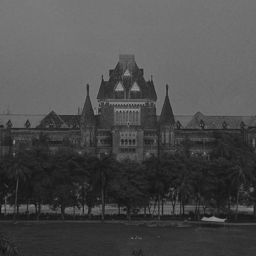Our Dispute Resolution team pursues practical solutions for our clients in the shortest possible time. Legal proceedings in India are often protracted and lengthy. Our aim is to provide the client with effective strategies and solutions while endeavouring to avoid lengthy legal proceedings.
We work towards achieving these objectives by first attempting to resolve contentious issues by mediation. If non-adversarial options do not resolve the issue, we advise our clients to pursue arbitration and/or litigation before the appropriate forums. Our expertise lies in setting out a proper course, which practically benefits a client, whether they are prosecuting or defending a claim. Negotiating a viable settlement, most beneficial to our client is our forte.
The Firm is competent and experienced in advising not only on commercial and corporate disputes throughout India but also internationally in several jurisdictions through its associate international network of independent law firms across the globe i.e. Advoc.
We assist and advise our Clients right from the commencement of the dispute by (a) evaluating and honestly discussing the merits of the dispute, (b) determining the dispute resolution strategy, (c) drafting and filing the necessary legal proceedings before the appropriate forum as per the dispute resolution strategy along with complying with all the procedural rules/regulations of the concerned forum, (d) engaging specialised counsel (as maybe needed) and appearing before the concerned judicial forums on behalf of the Client.
The Firm has advised and/or acted on behalf of its clients before:
- Supreme Court of India
- High Courts across India
- Districts Courts across India
- Securities Exchange Board of India (SEBI)
- Securities Appellate Tribunal
- Real Estate Regulatory Authorities
- Real Estate Regulatory Appellate Tribunals
- Consumer Redressal Forums
- National Company Law Tribunals across India
- National Company Law Appellate Tribunal
- Debt Recovery Tribunals across India
- Debt Recovery Appellate Tribunal
- Several Foreign and Domestic Arbitral Tribunals
- Several foreign Judicial Forums
NEED ADVICE?
By asking a question, you are doing so of your own volition and the same shall not amount to solicitation by Dhruve Liladhar & Co and/or any of its it’s members.
FAQS
What are the different types of disputes?
Dispute is essentially a disagreement on a point of law or fact or views or interests between two or more people. Owing to its vast nature it is difficult to enumerate all the different types of disputes but broadly can be classified under, business owner disputes, contractual disputes, debt recovery, property disputes etc.
What are the different types of dispute resolution process?
There are three basic types of dispute resolution process i.e. Mediation, Arbitration and Litigation.
Mediation is essentially process of negotiation, which is conducted by a neutral third person, called a ‘Mediator’ to help the disputing parties come to an amicable consensus on their own.
Arbitration: is an alternative method of dispute resolution process by which a dispute is submitted, by an agreement amongst the disputing parties, for adjudication to an arbitral tribunal consisting of one or more private individual known as arbitrators. It has all the trappings of a court, but without the strict rules of court procedure.
Litigation: the most common type of civil dispute resolution process through the courts by filing a case in the concerned court often known as a ‘Suit’. The dispute is decided by a Judge after weighing in all the evidence presented by the disputing parties.
What is a legal notice?
A legal notice is a formal communication to a person or an entity, calling upon them to “cure” a default, and informing them of the intention to undertake legal proceedings against them if such default is not cured. Certain laws (such as Insolvency and Bankruptcy Code, Negotiable instrument Act) compulsorily mandate a notice before instituting proceedings under a specific Act against the other person.
Is there a time period within which the dispute resolution process must commence in respect of a particular dispute?
Generally, the law provides a period of three years from the date the dispute had arisen for commencement of a dispute resolution process, popularly known as limitation period. However there are several exceptions to the general rule to be accounted for in computing the limitation period.
Are there any costs involved for dispute resolution process other than professional legal fees?
For Mediation and Arbitration there are fees of the mediators and arbitrators which are generally equally shared between the disputing parties. For litigation there are court fees to be paid by the person initiating the process which are based on the quantum of monetary claims.
What is the time frame for the completion of the dispute resolution process?
Not accounting for appeals, Mediation and Arbitration proceedings generally are completed within 1 to 2 years. Litigation is dependent on the court and due to the current pending backlog, it generally takes several years to be completed.



